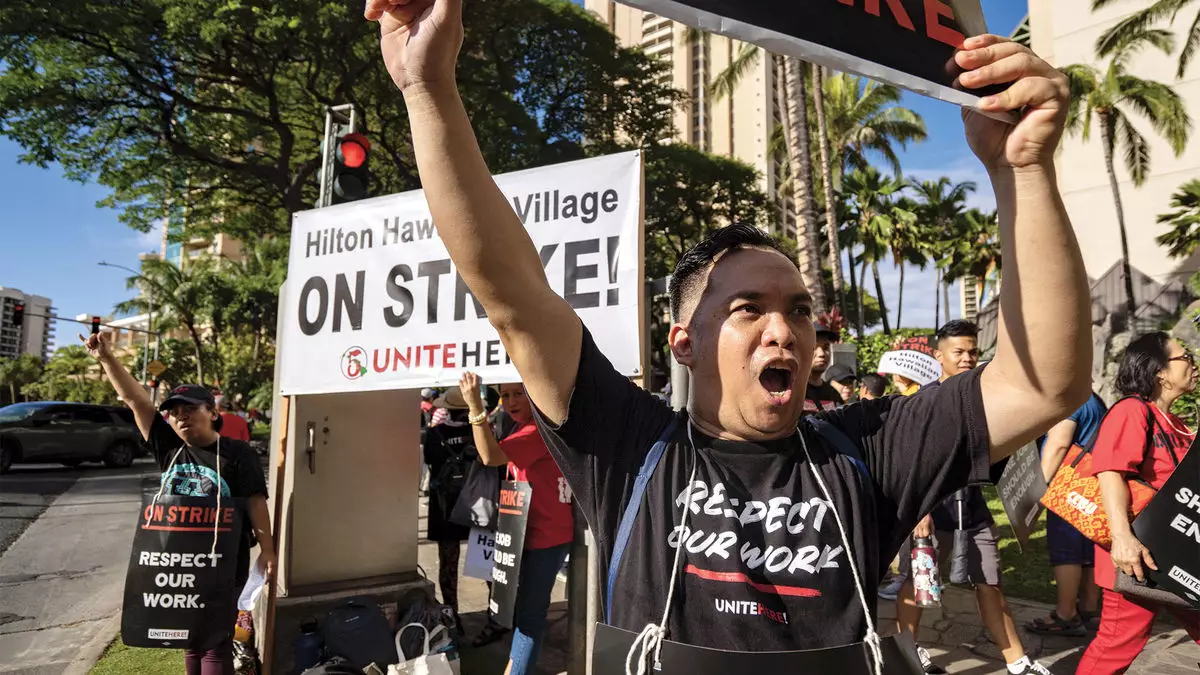In a striking display of solidarity and workforce dissatisfaction, over 1,800 employees of the Hilton Hawaiian Village Waikiki Beach Resort have united in a strike that has now entered its third week. This action, encompassing housekeepers, maintenance personnel, front desk staff, and food service employees, underscores the growing tensions between labor forces and management within the hospitality industry. The workers are advocating for essential changes that reflect the realities imposed by inflation and cost of living adjustments, as well as a push for better working conditions.
At the heart of the strike lies a profound frustration with stalled contract negotiations. As reported by Unite HERE Local 5, the union representing the workers, several critical issues remain unaddressed: wages, staffing benchmarks, and the reversal of service reductions instituted during the pandemic. These concerns speak to broader trends in labor relations, where employees are increasingly unwilling to accept less favorable working conditions, especially as the world shifts back towards normalcy post-COVID.
Feeling the pressure of rising living costs, workers are demanding pay increases that properly reflect the economic landscape. In addition, they require a pledge from management to enhance staffing levels to avoid overwhelming employees with excessive workloads. Such measures are not merely a request for better working conditions; they are essential for maintaining the quality of service that guests expect from a leading resort brand.
From the perspective of guests, the strike has not gone unnoticed. Many patrons have expressed discontent, citing insufficient communication regarding the disruption. Complaints highlight alterations in service delivery, with reports of longer wait times and fewer available amenities. This unsettled atmosphere not only impacts guest satisfaction but also places the resort’s reputation on the line.
In response, the Hilton management has claimed a commitment to guest comfort, promising personalized attention to address inconveniences. A spokesperson for the resort emphasized their dedication to an operational ethos of “signature hospitality,” while simultaneously trying to broker a resolution with the striking workers. However, the lack of clarity surrounding the strike’s duration leaves an uncertain future for both staff and guests alike.
With the strike ongoing, the question looms: how long will these stalemates persist? Workers have indicated that they will continue their protest until a fair contract is reached—one that not only acknowledges their contributions but also prioritizes their rights and welfare. The seasonal nature of Hawaii’s tourism may ultimately pressure both parties to find common ground quickly to prevent further reputational damage.
In summarizing this labor dispute, it becomes evident that the right to fair working conditions is integral to creating a sustainable and successful hospitality environment. As the strike continues, it will be a significant moment for the Hilton Hawaiian Village and the broader industry, highlighting the ongoing evolution of labor rights in the face of shifting economic realities.

